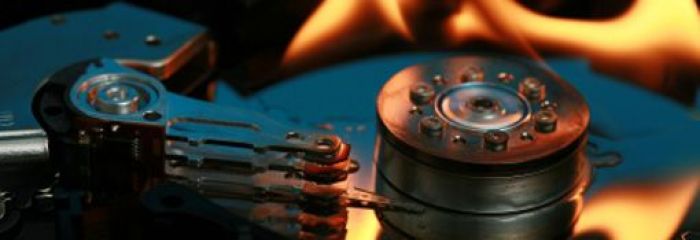An overheating computer can impact your productivity at work and make you lose time and money. Last-generation hard drives have superior speeds, ranging from 7,000 revolutions per minute (RPM) to 10,000, and can reach temperatures of over 70 degrees Fahrenheit. You may be wondering: why should I worry about high temperatures inside my drive? The answer is simple: hard drives that are constantly exposed to extreme heat are more likely to crash and force you to invest in hard disk repair and data recovery.
How to Identify an Overheating Computer
Worried that your computer may be overheating? Here are a few signs indicating that your PC could be impacted by this common problem
1. Instability issues experienced with your system: if you have recently recorded more than a few problems, like blue screens, unexpected shut downs or freezes, note that these inconveniences could be the main indicators of an overheating computer.
2. Your fan is extremely loud and signals heat issues (nonetheless, if this inconvenience is accompanied by a clicking sound, this may mean that the fan itself requires repairs or replacement)
3. Computer runs slowly: the reduced performance of your personal computer could indicate that your PC is throttling its components in an attempt to reduce heat production
4. High temperatures, sometimes associated with a burning smell
How to Deal with an Overhearing Computer
If you are not tech savvy, it is highly recommended to let an expert handle the problems caused by your overheating computer. However, there are a few simple steps that you could apply on your own, without any help from a professional, to avoid further complications, like data recovery hassles, for instance.
First Step: Eliminate dust buildups that could appear inside your computer. Fan filters can help you prevent dust and debris accumulations, but they can also restrict air flow; so buy and install them only if you live in areas where dust contamination is a major inconvenience.
Second Step: Buy and implement new fans of upgrade the existing ones.
Third Step: Choose the ideal spot for your PC. Keep in mind that your computer does not require any direct sunlight, which could only worsen your overheating problem. It should be protected from all kinds of heat sources (including fireplaces or electric stoves). For maximum protection, you could also invest in a modern cooler pad.
Fourth Step: Remember that overclocking is a huge mistake. Overclocking can boost heat production, impact the functionality of your computer and cause a potential crash. If you store important data in your computer, note that hard disk failure would compel you to spend money on lost data recovery.
Fifth Step: Monitor hard disk temperatures: you don’t have to be an IT specialist to be able to monitor hard disk temperatures. Special software enables you to keep internal temperatures under control and avoid hard disk repairs and recovery hard disks services, ensured by a reliable data recovery specialist.
In this case, prevention is the key to success. If you are concerned about heat issues affecting the functionality of your PC, address this inconvenience as soon as possible. Otherwise, get ready to deal with further complications, including hard disk failure, data loss and data recovery.
